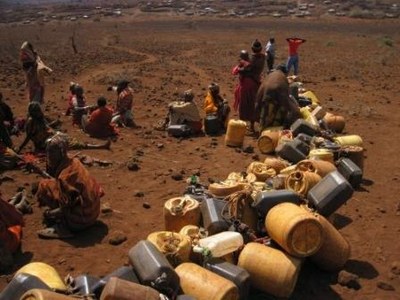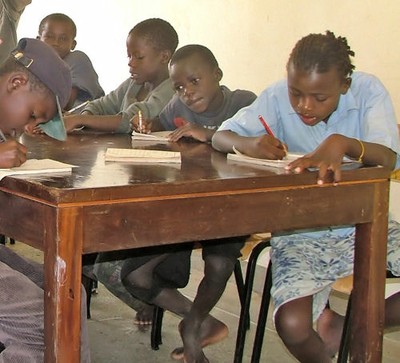East Africa Famine: Drought affects school attendace in Kenya

The ongoing drought in northern Kenya, one of the worst of our times, has also affected school attendance. Since SOS Children began delivering fresh water and food to schools in August, classes have started to fill up again.
Lucy Lomagul Abalem, a class teacher at Comboni school, where the majority of children are either orphans or come from extremely poor families, explains the impact of the drought on the school:
“It has been very challenging,’ she says, “The school had neither food nor a single drop of water in the compound, so the children left, moving away from this area to look for food and water. We were struggling to keep them. I would come to school only to stare at an almost empty class. The few who still came would sleep on their desks, and complained that they felt unwell. Children can’t learn on empty stomachs: they were too preoccupied with thirst and hunger. They were weak and had no interest in learning.”
 Children can’t learn on empty stomachs
Children can’t learn on empty stomachs
Eventually the school received some supplementary food and water from the government, “But it wasn’t enough for all the children,” Lucy adds, “I grew up in Marsabit, and this is the worst I’ve ever seen. Water is now sold at exorbitant prices. Only rich people can afford it. If you are poor, you have to stay without.”
Lucy had never heard of SOS Children until one day in August, when the head teacher told her that the organization would provide food and fresh water for the children. “Nutritious food and good water have motivated children to come back ,” she says. “Now they are lively, happy and eager to learn. For some of them this is the only meal they will get all day, and a free meal for these poor children is a life saver. “
Break time
It is break time, and the school bell rings. Dozens of smiling children come running out of their classes in a cloud of dust. They grab their bowls and head to the kitchen, waiting to be given porridge. The small windowless kitchen is full of smoke, and porridge is being prepared in a huge pot. The cook, a stern-looking young woman, stirs the white bubbling liquid with an enormous wooden spoon.
Porridge is served to the children amid pleas for more. The little ones, as young as five, use their fingers to shovel the food into their mouths. The older ones use a spoon or eat it from the bowl. Jacyntha , 15 years old, has just finished hers. She smiles, looking at the smaller children, who are still eating: “I feel so much better now,” she says. “It was really bad in those days…no food, no water - people were really starving. I myself didn’t have the energy to learn. I felt like sleeping rather than coming to school. I spent most of my time searching for food and water. Now that the school has both, I feel healthier and am a happier person. And I can concentrate on my schoolwork.. one more good reason to get good grades!”
SOS Children is currently looking after five schools in Marsabit: Comboni, SKM, Manyatta Jilo, Hula Hula and Parkishon with water and food distribution. Porridge is given in the morning to all children during break time, while for lunch they are given gideri, a mixture of maize and beans. SOS Children is also helping the community around the school by providing electronic food vouchers, as well as good drinking water, and providing dispensaries with medicines.
How you can help
You can make a one-off donation directly to our Emergency Relief Programme, or take out a child sponsorship to help us to focus on the long-term welfare of children who have no one to care for them as a result of the famine.

 Return to Schools Wikipedia Home page…
Return to Schools Wikipedia Home page…
